Westralian mining legend Ron Manners of Mannkal belongs in The Property and Freedom SocietyOther entries featuring Benjamin Marks» , Property and Freedom Society»by Benjamin Marks, Capitalism.HK and Economics.org.au editor
O fortunate age! O happy times! in which shall be made public my incomparable atchievements, worthy to be ingraved in brass, on marble sculptured, and in painting shewn, as great examples to futurity! and O! thou sage inchanter, whosoever thou may’st be, doom’d to record the wondrous story! forget not, I beseech thee, the trusty Property and Freedom Society, the firm companion of my various fate!
~ Don Quixote de la Mancha1Complying with Rothbard’s strict unanimity criterion, Turkey is the only modern day libertarian country. It is difficult for those who don’t speak a word of Turkish to comprehend the marvel, but I was able to get a good taste after interviewing scores of English-speakers in Turkey, all of whom were anarchocapitalist. This must be due to the diplomatic manoeuvrings and popular scheming of Turkey’s Property and Freedom Society (PFS), especially its annual meetings, with The Honourable Hans-Hermann Hoppe as host alongside his wife Gülçin as “the indispensable framework”. I was very fortunate that the 7th annual PFS meeting coincided with my recent visit to the southwest Turkish city of Bodrum.
Bodrum has so rich a history that it is even where “the father of history” Herodotus resided, and so, although I do not claim to be a professional historian, its history of historical awareness plausibly explains how it became the most libertarian country in the world today. The conference venue was the Hotel Karia Princess, which sounds like a cruise ship, and in the beginning of its history the evidence would indicate that it was a cruise ship that decided to stay put at the best location rather than travel to pick up passengers, or, more likely, to return them. The rooms were large enough for a modest harem. The food! The food was fit for a: libertarian. And the drinks! At 16 months since the last Property and Freedom Society meeting, it was a long time between drinks. And for Duncan of the U.K., Doolittle of the U.S. and De Roeck of Belgium, it looked like it was also a long time between meals. Evidently drinking like a fish has a different meaning to eating like a fish. It is very libertarian to think of progress as weight loss.
What I found most representative of PFS was a conversation I had involving the youthful Kinsella jnr. He is understandably so familiar with censoring his opinions that his father had to remind him that it is okay to speak his mind at PFS, which Hoppe proclaims a “political correctness free zone”. I think everyone struggled a little with this; jetlag was a non-issue compared with turning down our self-censorship settings. Many of us had forgotten where our self-censorship setting was, as we find it easier to just change the channel. I wonder if the popularity of sport can be explained as simply people finding somewhere where they are allowed to speak their mind and genuinely speak out in plain language against the opposition.
What I found fiercest was the very gentlemanly Karl-Peter Schwarz chastising Václav Klaus and Tyler Cowen for their opposition to returning land confiscated by governments to their rightful owners.
What I found funniest was Hoppe reading out the many functions of government that Hayek supported. Next time Hoppe delivers that speech there needs to be an intermission. But even without an intermission, or any time constraints of any sort since Hoppe wrote the schedule, even then! there was still only time for the speech to be just basically a list of where Hayek supported government.
From VDare:
John Derbyshire On Hans-Herman Hoppe–The Last Paleolibertarian
By John Derbyshire on September 24, 2012 at 1:32amWhat a menagerie we have become, here on the political Right!
Neoconservatives we all know about. They are the guys who favor restraint in taxation and regulation while being supportive of free trade, the welfare state, globalization, and the World Policemanrole. Neoconservatives are currently basking in well-funded triumph, having taken over the Republican Party.
Paleoconservatives are still with us, or at least Pat Buchanan andChronicles magazine are. They preach restraint in foreign relations,traditional values, patriotism, and the Tariff.
Somewhere in between the two lie neo-reactionaries. I can’t quite get a handle on this term, but I have been seeing it with rising frequency this past few months. Is it really possible to have a category that includes both Jonah Goldberg and the weird but brilliant Mencius Moldbug? (I am a regular reader of MM, insofar as one can be a regular reader of a blogger who sometimes goes two months between posts.)
One percipient observer sees the beginnings of an entirely new kind of conservatism, distinct from all the foregoing: a “Dark Enlightenment,” of which I am (he says) one of the fuglemen, along with the aforementioned Mencius Moldbug.
From Sean Gabb on VDare:
Libertarianism, Conservatism, And Immigration: The Hoppe Solution
By Sean Gabb on October 21, 2012 at 12:14am[See also John Derbyshire On Hans-Herman Hoppe—The Last Paleolibertarian]
[Peter Brimelow writes: Alas, I had to miss the recent annual meeting of Hans-Herman Hoppe’s Property and Freedom Society in Bodrum, Turkey—for my thoughts on last year’s and earlier meetings, see here. The next meeting will be heldSeptember 19-24 2013 and I encourage VDARE.com readers to go. I’m consoling myself by posting a shortened version of Sean Gabb’s contribution, “Hans-Hermann Hoppe And the Political Equivalent of Nuclear Fusion,” to the festschrift Property, Freedom, and Society: Essays in Honor of Hans-Hermann Hoppe, edited by Jörg Guido Hülsmann and Stephan Kinsella.]
I have been invited to contribute a chapter to this book of appreciations of Hans-Hermann Hoppe. Now, he is a person of forbidding achievements. He has made important contributions toeconomics, to political theory, to law, and to epistemology, among much else. He is also a person of much organizational ability, and the conferences he runs at Bodrum for his Property and Freedom Society have rapidly established themselves as one of the high points in the libertarian calendar.
Smiling in Bodrum By Michael J. McKay
“Why are you smiling?”
My friend asked me this as our van accelerated away on our departure from Bodrum, Turkey.
I was unable to answer him, frankly, because I had stopped noticing. I guess I had been smiling permanently since my arrival at the Property and Freedom Society conference six days earlier.
Last year, my dear friend and blogger-colleague, Andy Duncan, wrote an excellent article entitled “A Few Days Outside the Asylum”. This beautifully summarized how wonderful and special the annual PFS Conference becomes to its attendees. Andy is a far better writer than I am and everyone would be served to read (or re-read) his wonderful article, which you can find here.
Why would anyone want to travel to Turkey and endure such cost and trouble, just to hear a few days of lectures that will be posted for free viewing on the Internet, anyway?
Ah, but that is only one of the pearls of distributed wisdom that one receives in Bodrum.
Professor’s Hoppe’s Economic Science and the Austrian Method has been translated into Spanish, as “La ciencia económica y el método austriaco” [PDF] by Dante Bayona. It should be available soon for purchase in paper form on Amazon.
The Eighth Annual Meeting of the PFS will be held from Thursday, September 19, to Tuesday, September 24, 2013, in Bodrum, Turkey, at the Hotel Karia Princess. Those interested in attending should contact Dr. Hoppe or Mr. Grözinger, Administrative Secretary, regarding conditions, availability, and requirements.
The Seventh Annual Meeting of the PFS was held in Bodrum, Turkey, from Thursday September 27 through Monday October 1, 2012. The list of speakers and topics may be found here. Audio and video of the presentations will be available presently. The list of speakers for the Sixth Annual Meeting (May 26-30, 2011) may be found in the Program; video of the presentations are available here.
From Joakim Fagerström on Mises Sweden, an interview he conducted at the 7th Annual Meeting of the PFS:
Interview with Vytautas Žukauskas – PFS2012
Publicerad av Joakim Fagerström
Vytautas is one of these young libertarians that give you real hope about the future. Vytautas is young smart, full of energy, well-educated and would make any socialist tremble with fear. He is a Senior Policy Analyst at the Lithuanian Free Market Institute and lives in Vilnius, Lithuania.Lithuanian Free Market Institute is a quite big and active Institute and employs 12 people. Remigijus Šimašius who is a frequent visitor at the PFS was the President of Lithuanian Free Market Institutefrom 2006-2008 but became the Minister of Justice 2008 in Lithuania. I was really happy to meet Vytautas at PFS and we had a very nice interview where he told me about PFS, his work at the Institute and the future. It was great to do this interview and we wish Vytautas all the best in the future and hope that we can cooperate more between Sweden and Lithuania in the future.
Interview with Helio Beltrão – PFS2012
From Joakim Fagerström on Mises Sweden, an interview he conducted at the 7th Annual Meeting of the PFS:
Mr Helio Beltrão is the President and one of the founders of Mises Brasil. I met Helio three years ago and he inspired us to start mises.se. Helio continues to be a very close friend and ally in the struggle for freedom. Mises Brasil and Mises Sweden has very close ties and I hope we will continue to have this for many years to come. In this interview Helio tell us about many good things that are happening with Mises Brasil, about PFS and his personal background in the financial industry. So I give you this very nice and relaxed interview with Mr Helio Beltrão recorded somewhere outside Bodrum Turkey on the Aegean Sea on what is known as “Bad Boyz Boat II”.
Sorry for the background noise but it just a bunch of very nice libertarians having the time of their life!
http://vimeo.com/51058157
Interview with Helio Beltrão – PFS2012
The group photo from the recently-concluded 7th Annual Meeting of the PFS is below. More pictures to be posted soon; pictures from previous years are on the Media page.
From Joakim Fagerström on Mises Sweden, an interview he conducted at the 7th Annual Meeting of the PFS. See also Jeff Tucker on PFS 2012: The Center of the Conspiracy (Sep. 29, 2012).
Interview with Jeffrey Tucker and Professor Hans-Hermann Hoppe – PFS2012
mån 8 oktober, 2012
Publicerad av Joakim Fagerström
I was very pleased to be able to interview the living legend Mr Jeffrey Tucker by the pool at the Property and Freedom Society 2012. Mr Tucker is the former editor of mises.org and the current Executive Editor of Laissez Faire Books. Thanks to him mises.org has grew enormously thanks to the fantastic web site amongst other things. I am sure that Mr Tucker and Mr French will be as successful in expanding Laissez Faire Books in many years to come.
Every time you meet Mr Tucker he is everything you would imagine him to be: a real gentleman, full of inspiration and a passion about everything beautiful in life. In Turkey I personally witnessed that you can actually look good in a bow tie even if you go for a swim. In this interview Mr. Tucker tell us all about PFS, the goals with Laissez-Faire Books, about Turkey and his recent book A Beautiful Anarchy. How can we build and achieve liberty for ourselves in our lifetime?
We also discuss Professor Hoppe’s most recent book The Great Fiction which Mr. Tucker say will make you a ”dangerous man” if you read it. You can buy both these books from exclusive from Laissez-Faire Books or for free by becoming a member here. In the end Professor Hoppe joined us for some comments about his book and the PFS.
I am reading both books right now and you can look forward to a review here at mises.se soon.
Interview with Jeffrey Tucker and Professor Hans-Hermann Hoppe – PFS 2012
Interview with Jeffrey Tucker and Professor Hoppe – Property and Freedom Society 2012 from LvMI Sverige on Vimeo.
From Mises Sweden:
Interview with Roman Skaskiw—Property and Freedom Society 2012
sön 7 oktober, 2012
Publicerad av Joakim Fagerström
I had a chance to interview the very likable and intelligent Roman Skaskiw at PFS2012 this year. I met Roman last year at PFS2011 and had the chance to listen to his great speech about his journey from being an agent of the state to the conclusion that the state is wrong and evil. This was one of my favourite speeches last year. In this interview Roman tell us about what PFS means for him, about his speech last year and about his new adventures in Ukraine. I give you the great Roman Skaskiw.
Another post from Joakim Fagerström about the recently-concluded 7th Annual Meeting of the PFS is repixeled below. Previous reports from this year and other year are listed on our Press page.
Inflation Blues – Property and Freedom Society 2012
Publicerad av Joakim Fagerström
I recorded around 15 small movies and interviews at the Property and Freedom Society 2012 and will publish them one by one. I had a lot of fun doing the interviews and they are really really good so I hope you will enjoy them. The first movie is the Inflation Blues performed by Professor Hunt Tooley and Joe Becker. A great song and fantastic performance in the honour of Ludwig von Mises 131st birthday!
Sean Ring’s post about the recently-concluded 7th Annual Meeting of the PFS is repixeled below. Previous reports from this year and other year are listed on our Press page.
The Chief Event
by SEAN on 2012/10/04
If you’re new here, you may want to subscribe to my RSS feed. Thanks for visiting!
“A chief event of life is the day in which we have encountered a mind that startled us.” – Ralph Waldo Emerson
I’ve had frustratingly little to inspire me to write on this blog. You can see my most recent post is from April. Sure, I’ve had some interesting travels and met some really nice people, but nothing forced my hand.
Then this past week happened.
And now nothing is the same.
One of my great friends, Andy Duncan, is an avowed “English Rothbardian heretic”. In short form, he’s a libertarian and an anarcho-capitalist. If one has ever lived in the UK and seen the damage the nanny state can do, one can easily understand that, daaaling. (His blog,thegodthatfailed.org, is a summary of all things libertarian. It’s free and well worth reading. Often.)
Andy and I have worked together for years as financial trainers. Once, while he was here in Singapore, Andy heard me give a market overview that covered fiat money, fractional reserve banking, precious metals and dollar debasement. Really, all the reasons we’re still not out of the mess we’re in. In one fell swoop, our friendship went from beer to ideas.
Andy secured for me an invitation to the 7th Annual Meeting of the Property & Freedom Society in Bodrum, Turkey. This is the epicentre of the Austrian Economics and Libertarian community. Admittedly, PFS’s motto of “Uncompromising Intellectual Radicalism” was a bit much for this Joisey Boy, albeit a well-travelled one. I was, of course, intimidated and hesitated to make my travel arrangements promptly.
But when Hans Hermann Hoppe invites you somewhere, you man up and go. So I padded my journey with 3 days in Istanbul – can you believe I’m not writing about that – before taking the short flight to the coast.
I arrived at Bodrum airport and transport was waiting for me. Joining me were some well-dressed, friendly people who were chatting comfortably and included me in immediately. I was confused.
Weren’t these guys supposed to be radicals? I could immediately sense their intelligence, but the niceness was what threw me. Aren’t radicals supposed to be nasty, or at the very least, standoffish? What was to come?
I arrived at the fabulous Hotel Karia Princess, frantically trying to locate Andy. The official reception to open the conference was at 7:30pm, only two hours away. I needed to hang on to him there, surely.
Well, he didn’t get my texts. So I reluctantly suited up and headed to the pool area for a drink. I walked briskly and located Andy, thank heavens!
And what does he do for my initiation? “Sean, this is Detlef Schlichter.”
And off to the races my bowels went. THE Detlef Schlichter? The guy who put into perspective fiat money, gold, fractional reserve banking, and our current economic malaise into one single readable volume? Think Economic Theory meets German Engineering. Yeah, that guy. (By the way, if you haven’t read Detlef’s masterful Paper Money Collapse, something is missing from your life. Stop reading this and go buy that here. Then come back.)
Well, Detlef was more interested in my forthcoming talk about Expatriation than in talking about his own book. In fact, I didn’t get to ask him any good questions about his stuff because I was too busy talking about me. But I did find out Detlef is a fellow Gooner. (For you uninitiated, that means he’s an Arsenal fan and clearly a man of taste.)
After that, I met all sorts of great people. Some were my heroes. Some more famous than others, but all engaging, intelligent, and open.
And have you ever met someone who just oozed niceness? In fact, I don’t think I’ve ever used that phrase. When you’re from New Jersey, you probably wouldn’t. Well folks, I give you Michael McKay, founder of Radio Free Market. The greatest compliment I can give Michael is that I wish I knew him all my life. I’m sure I’d be a lot richer, but there’s no doubt I’d have had a sunnier disposition much sooner. He has great stuff here.
What followed during the next four days was some of the most incisive, logical, and succinct lectures I’ve ever had the privilege of hearing. It was as if an endorphin rush was strengthening my IQ. I hadn’t been so excited about learning in decades.
There was Joseph Salerno, speaking about sound money; there was Thorsten Polleit speaking about what bankers do and do not know; there was Hunt Tooley and Rahim Taghizadegan, speaking about the CIA, Iran, and the Iranians. Guido Huelsmann gave a fantastic talk about The State and the Gold Market.
I finally got to meet Jeffrey Tucker, the great author and Publisher and Executive Editor of Laissez-Faire Books. He’s also the only man under 60 who looks honest in a bow tie. I’ve admired him from afar for long. The Laissez-Faire Club’s Senior Editor, Doug French, gave a riveting talk about what happened at WaMu. Both Jeff and Doug are brilliant and approachable. [continue reading…]
Joakim Fagerström has provided nice summaries of the four days of the recently-concluded 7th Annual Meeting of the PFS. Previous reports from this year and other year are listed on our Press page.
- Property and Freedom Society dag 1 – 28 September (English translation-google)
- dag 2 (English)
- dag 3 (English)
- dag 4 (English)
The latest report on the recently-concluded 7th Annual Meeting of the PFS, by the Cobden Centre’s Andy Duncan, is appended below. Previous reports include Jeff Tucker on PFS 2012: The Center of the Conspiracy and Doug French on PFS 2012: The World’s Greatest Haircut; Duncan’s report from last year’s meeting is Outside the Asylum: Property and Freedom Society, Bodrum, Turkey, 2011. (For other accounts of previous Annual Meetings of the PFS, see our Press page.)
Inside the conspiracy: Property and Freedom Society, Bodrum, Turkey, 2012

In my article last year entitled Outside the Asylum, I described the joys of being alive at Professor Hans-Hermann Hoppe’s annual Property and Freedom Society conference, held in the beautiful Turkish harbour town of Bodrum. I compared and contrasted this to life everywhere else, inside the asylum of the organised criminal set of insidious tax farms known as the world’s nation states.
This year, I thought I would stay strictly inside the conspiracy of the professor’s bid to help the world become a place of eternal peace and prosperity for all.
It’s an outrageous aim, I know, but someone has to do it.
The particular beauty of the professor’s conference is that unlike a second coffee, which is always less good than the first creamy cup of the day, these conferences just keep getting better and better, as personal friendships develop and the Austrian movement becomes ever more vibrant and rich in its breadth and scope.
Getting a ticket to the event, via a private invitation from the professor, is for me the hottest global entry ticket to any event anywhere, far surpassing any special golden invite that a random Willy Wonka could dream up for any random chocolate factory, even one making really dark chocolate.
All of the following speeches were fully recorded by professional videographer, Michael Parley Griffith. As soon as those videos become available, I will make all of the links available here, except of course for my own lecture, as you will have to roast me in hell for five hundred years before I ever watch myself on video.

Remarkably, the conference did begin with yours truly delivering a short talk on Liberty through Literature. I contended that those of us who consume Austrian Economics, who will likely never produce a great non-fiction book such as Economics in One Lesson orBourbon for Breakfast, can best contribute to the cause of true freedom via the medium of fiction instead, whether via novels, short stories, graphic novels, movie scripts, or West End musicals. I believe that this cultural meme experiment is an interesting thing to do, both for the sake of individual creative ambition, but also a vital thing to do to help Austrianism penetrate beyond the tightly circumscribed realm of anti-intellectual intellectuals. [continue reading…]
I just returned from the 7th Annual Meeting of the PFS. Laissez-Faire Books’ Jeff Tucker has already weighed in (see Jeff Tucker on PFS 2012: The Center of the Conspiracy); here is Doug French’s piece (for other accounts of previous Annual Meetings of the PFS, see our Press page). Originally published as: Douglas French, “A Haircut in the Turkish Style,” Laissez Faire Books (Oct. 3, 2012; https://perma.cc/WJ9B-HL4X).
Dear Laissez Faire Today Reader,
I’ve just returned from the sector of Bodrum, Turkey, that is the source of life and energy for every community in the world: the market. Yes, the Black Sea is fabulous, the mountains are stunning, the wild pigs intriguing, and the fish exotic. But it’s the commerce that gives Bodrum is essential charm.
The same is probably true in your community. So why are political elites all over the world conspiring to hobble, loot ,and otherwise put stumbling blocks in the way of commercial enterprise? The answer is wealth. Governments want it. The private sector has it and creates. QED.
The Doug French article below provides an evocative look at the local commercial culture. I know you will enjoy its insights. Afterward, I will describe some of the people who have attended this wonderful event that brought me to this far-flung place, and tell you something that has animated much of the conversation here.Jeffrey Tucker
Laissez Faire ClubA Haircut in the Turkish Style
by Douglas French
A trip to Hans and Gulcin Hoppe’s Property and Freedom Society (PFS) salon in the beautiful port city of Bodrum is unforgettable in so many way ways. The “politically correct-free zone,” as professor Hoppe described it in his introductory remarks, is chicken soup for the isolated anarchist’s soul, with four days spent with the creme de la creme of stateless thinkers and theorizers.
The experience for invitation-only attendees is not as an admirer from afar, as is so often the case at conferences where the speakers rush in to give their talks, grab their honorariums, and rush off, out of reach of any real questions or socializing. In Bodrum, the stars are there to relax, and do, enjoying the tremendous hospitality, camaraderie, and comfort provided by the current dean of the Austrian School and his wife, Dr. Hoppe.
One is very likely to gain just as much insight during casual breakfast conversation as taking in the formal presentations. This is what is so special about Hoppe’s PFS salon. I’m attending my fourth PFS conference, and it is my fifth trip to Turkey, a country that while situated so close to much of the conflict in the world, always provides a sense of calm and serenity for me, faraway from America’s police state.
At the top of my agenda now whenever I come to Turkey is getting a real Turkishhaircut. My dad was a barber, who cut hair right up until the day he died at age 74. I grew up hanging around a barbershop. But the American haircut is but a doughnut hole compared to baklava.
The Turkish experience is rich and memorable. The Turkish barber is well aware that men grow hair in a number of places besides the top of their head. No knowledge of the Turkish language is required. It’s best to put yourself in the hands of the master scissorsmith, as he knows what needs to be done.
The communication required is the universal language of barbershops, pointing to the top of the ear and a short discussion in hand signals of what the back should look like.
The Turkish barber always scissor cuts, layering on both sides and back from bottom to top. Most U.S. barbers layer from front to back. The results are much different, and the shape of the cut remains intact much longer. There is no use of electric clippers with bulky plastic guides, as used so often at franchised barbershops in the U.S. The barber’s scissors work is fast and furious, pinching thumb and forefinger together in rapid succession, his concentration as intense as a painter’s working on a portrait.
The neighborhood shop in Bodrum that I visited had multiple flat-screen TVs blaring what looked and sounded to be local news. A particular news item gave my barber cause to stop suddenly, crank up the TV’s volume, and stop the proceedings as he peered into the tube. As is the case of all barbershops, a young apprentice waited patiently to sweep the floor, pick up dropped combs, and provide towels as needed. In a few years, he will become a master of the scissors universe. The look on his face said he thought he was ready to start cutting hair already, instead of being relegated to sweeping up the results of his employer’s work.
Although a young man, my barber’s place in the neighborhood was illustrated by the half-dozen people who acknowledged the coiffeur as they walked or drove by on the narrow cobblestone street that fronted his shop.
Next to the mirror, a small crockpot cooked up a plastic goo the color of bubble gum. After the hair cutting was complete, the barber scooped out a bit of the warm plastic on the tip of a tongue depressor and scrapped the substance into my ear. After it settled briefly, he ripped the plastic out and with it came hairs that had been growing unperturbed until then. He proudly showed me what was pulled out with the plastic.
Next he applied a clear liquid to my forehead with a cotton wipe. The liquid was a skin toner product, and he again made sure he showed me the grease and dirt that the toner had lifted from my forehead, despite my having showered but a couple hours prior. My eyebrows were next to be trimmed.
The removal of hair from the ear region did not stop with the plastic goo treatment. My hairsmith lit a small torch, and while shielding my eyes, he ran the flame expertly around my earlobes and top of my cheeks, singeing off any peach fuzz.
It’s rare that you see a straight edge razor in a U.S. barbershop, but it is standard equipment in Turkish shops. My Turkish barber handled the straight edge with dexterity. With it, he painstakingly trimmed my sideburns and shaved the back of my neck. There is no cleaner feeling.
From there, he spent an inordinate amount time trimming and shaping my gray sideburns, using his scissors to cut expertly, literally hair by hair. A huge contrast to the quick buzz over your sideburns U.S. barbers provide. The barber then directed the scissors to my nostrils, to excise annoying hair that most barbers stateside ignore.
If this attention weren’t bracing enough, next came a splash of lavender aftershave that made the cool breeze from the shop’s fan rush in my pores. The assistant then swung into action with towels and prepared the sink for a shampoo. My barber opened a cabinet door pointing to more than half-dozen large bottles of different brands of shampoos, giving me my choice. I left it up to his expert judgment.
The vigorous shampoo was followed by a massage starting first with my shoulders. The barber-turned-masseuse then worked down each arm and finished by pulling each of my fingers, popping the knuckles one by one.
I was then good to go. All for 20 Turkish lira ($12). My 10 lira tip looked to genuinely make his day, and we walked out to street arm in arm.
Civilization has been around for a long time in Bodrum. The Amphitheatre situated in the hillside overlooking Bodrum was built during the Carian reign in the Hellenistic age (330-30 B.C.). The Castle of St. Peter, Bodrum’s most distinguished landmark, divides the city’s harbor inu half. Work on the castle began in 1402 by the Knights of St John. The castle and city came under Ottoman rule in 1523. After centuries of neglect, the castle became a prison in 1895, and was even damaged during World War I by shells from aFrench warship.
Barbering was going on in Bodrum long before barbers were cutting hair in the U.S. Perhaps American haircutters will come around. But it’s not likely. Barbers have licensing and state rules to live buy. Minimum wage laws make hiring apprentices impossible. Sticking warm plastic in customers and burning off slight hairs with open flames would be frowned upon by the U.S. nanny state.
In an increasingly uncivilized world, made that way by ever-present and engorged governments, it is refreshing to attend a conference of anarchists to renew one’s sanity. I was able to recharge my intellectual batteries listening to presentations from the likes of Laissez Faire authors Hoppe, Kinsella, and Tucker. I can now return to the U.S. replenished, ready for the intellectual fight.
And with the best haircut in the world.
Sincerely,
Douglas French


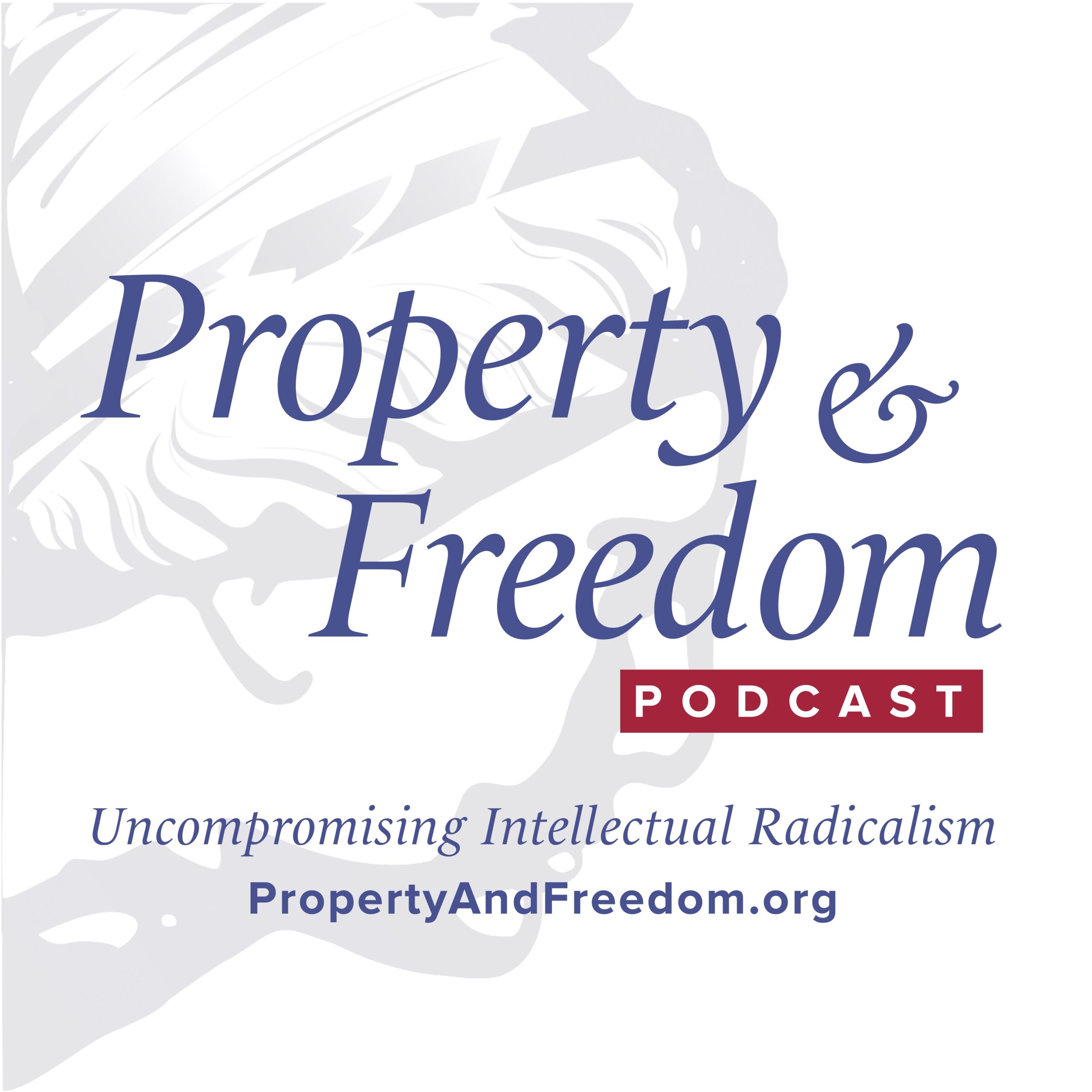

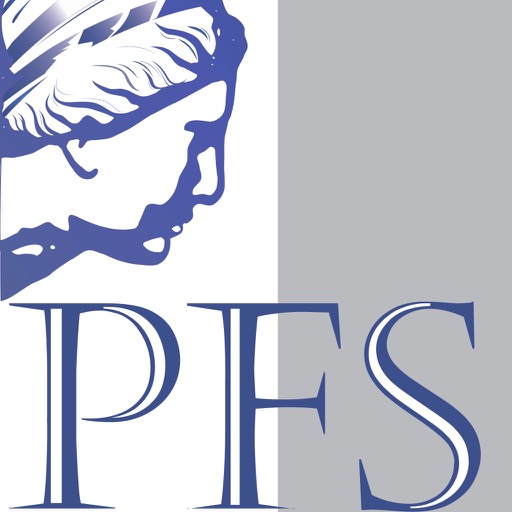
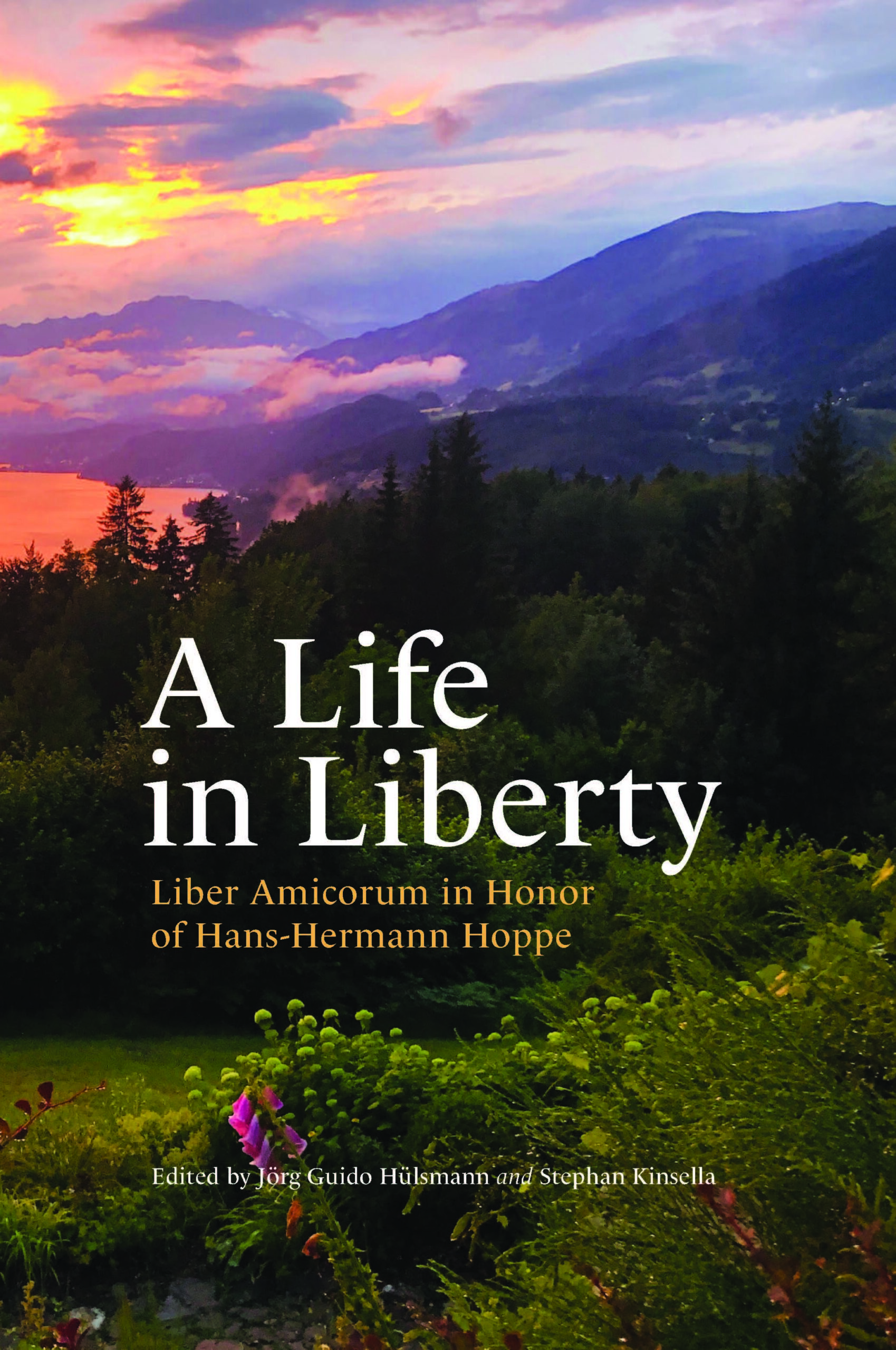
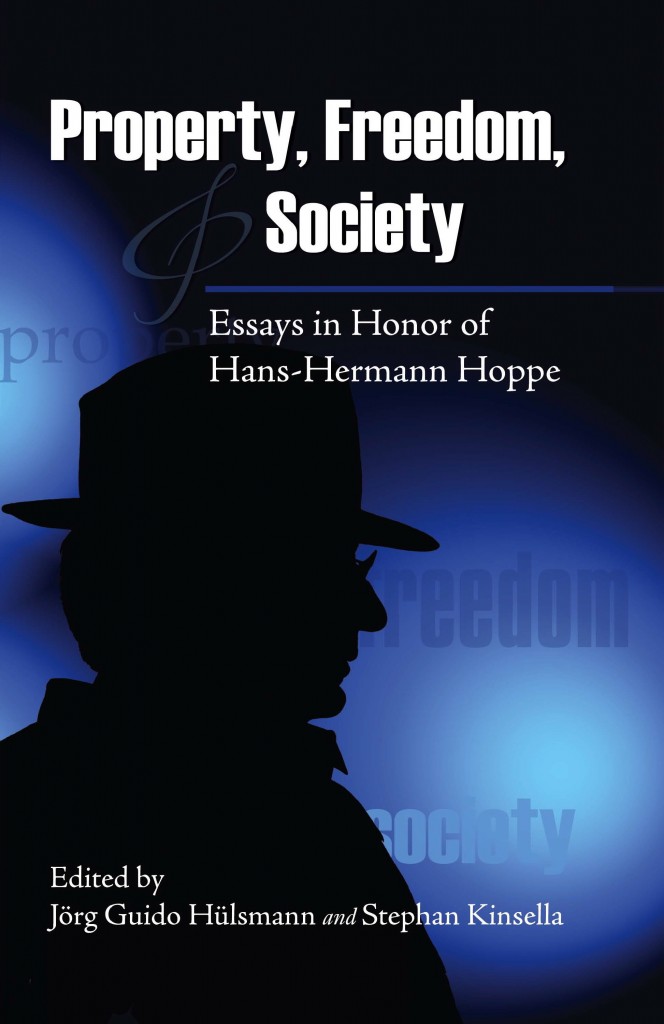
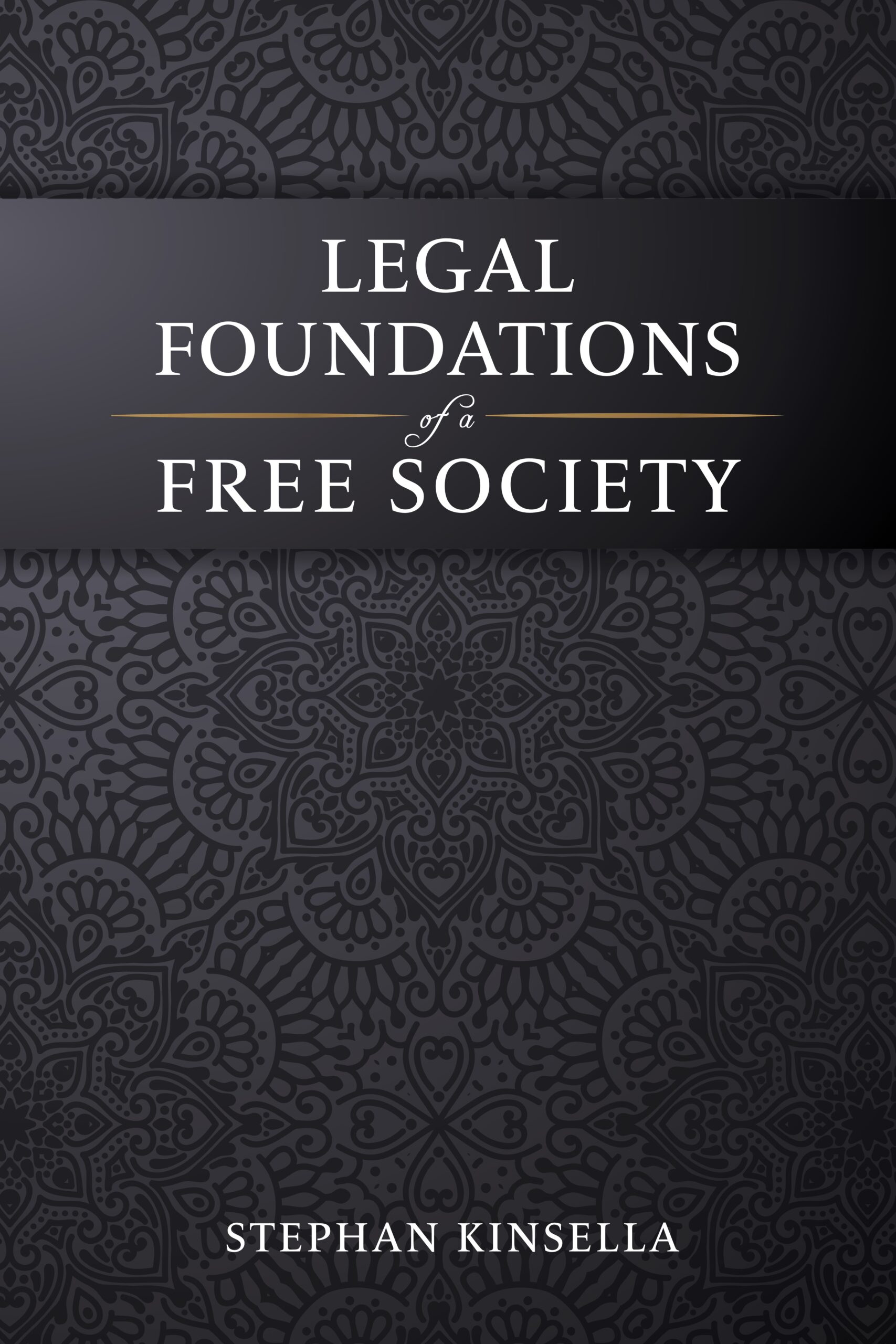
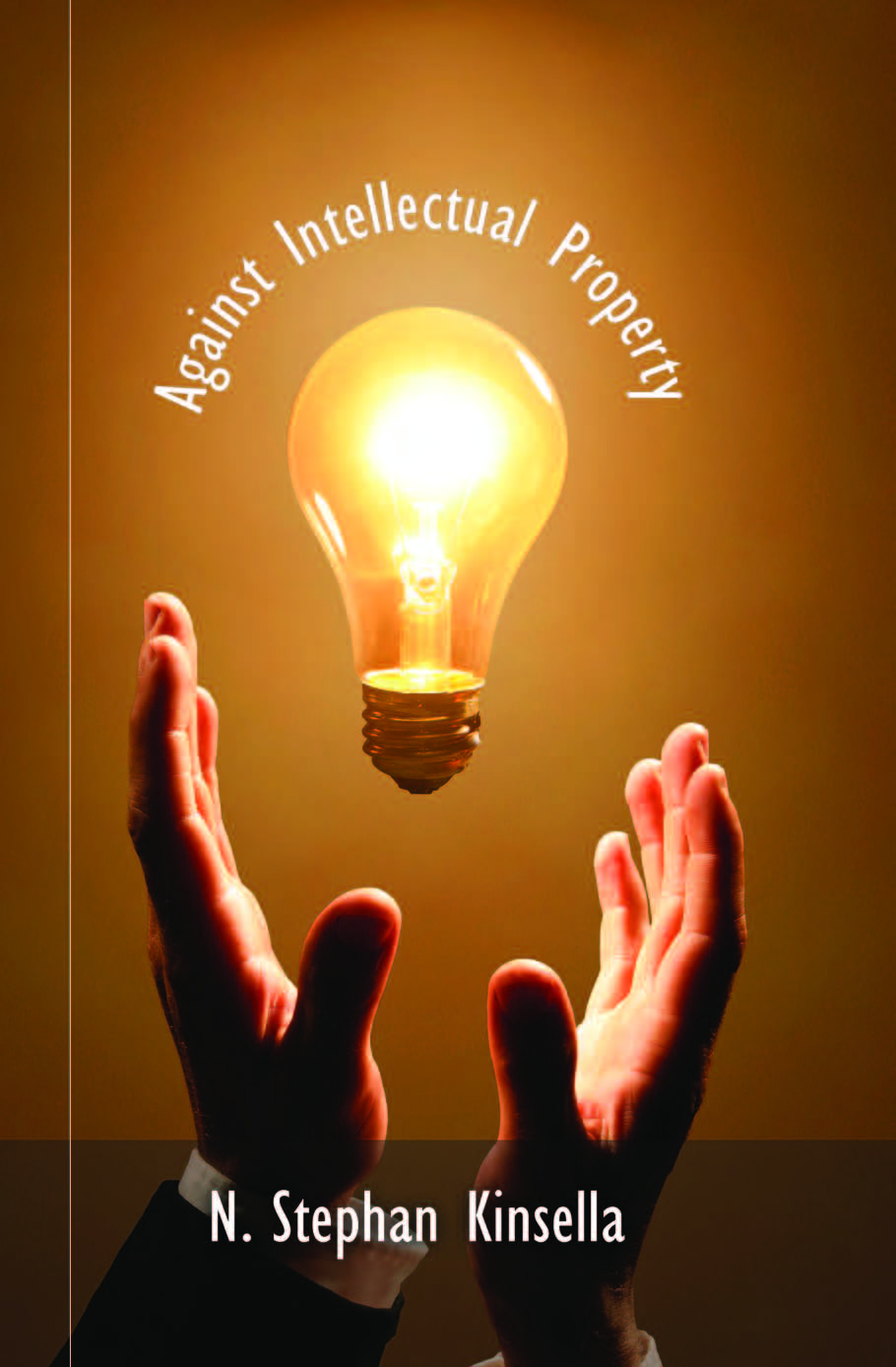
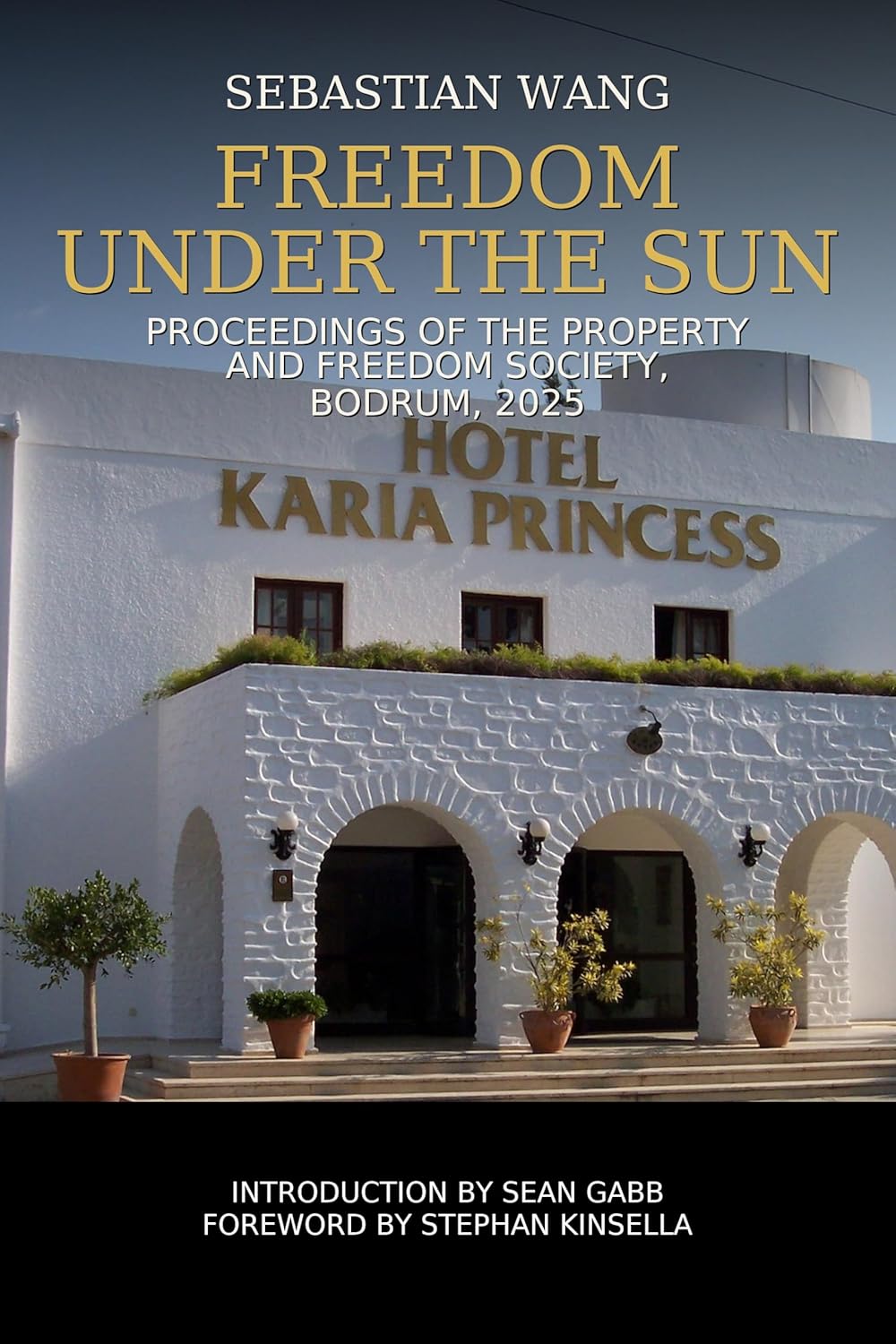
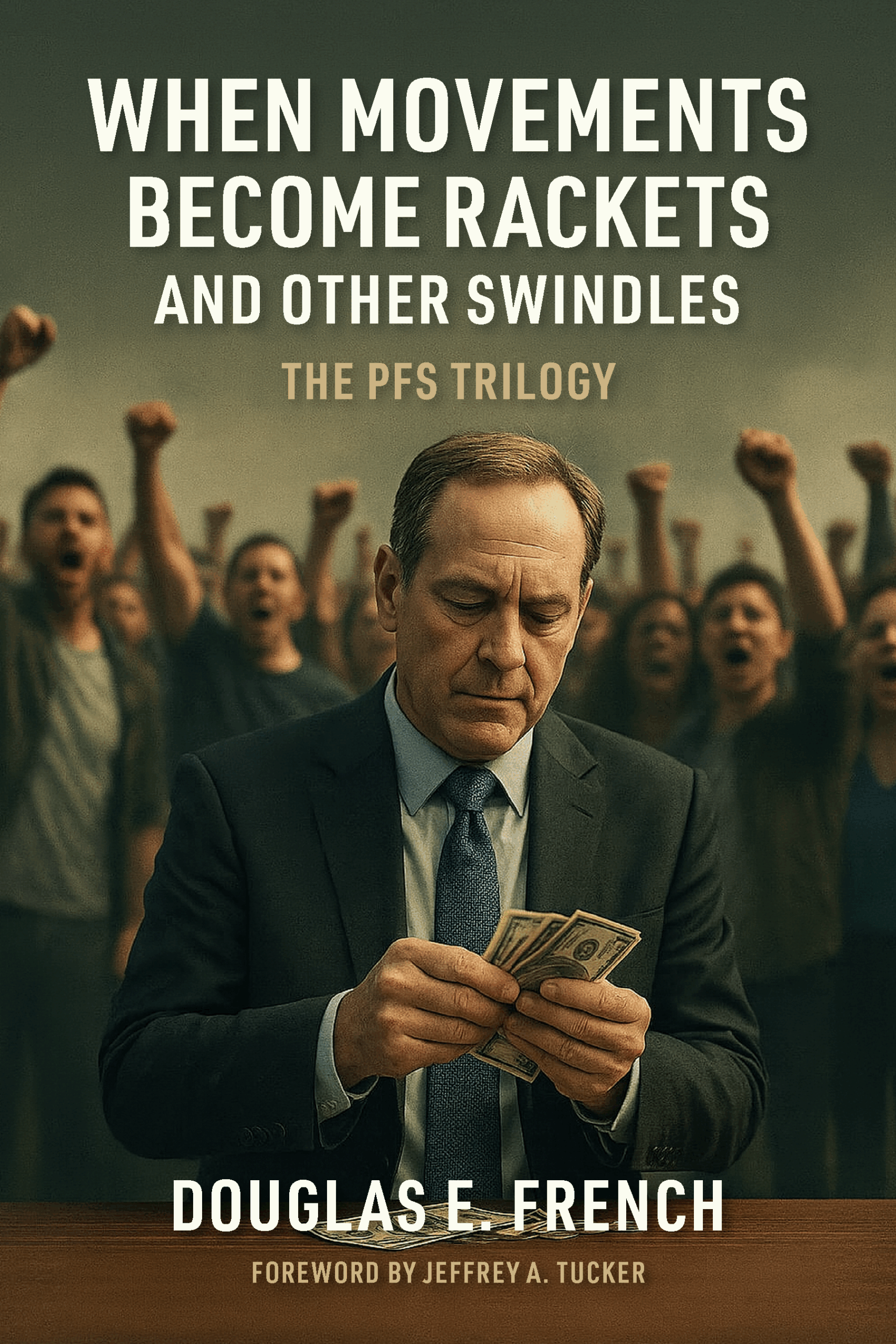


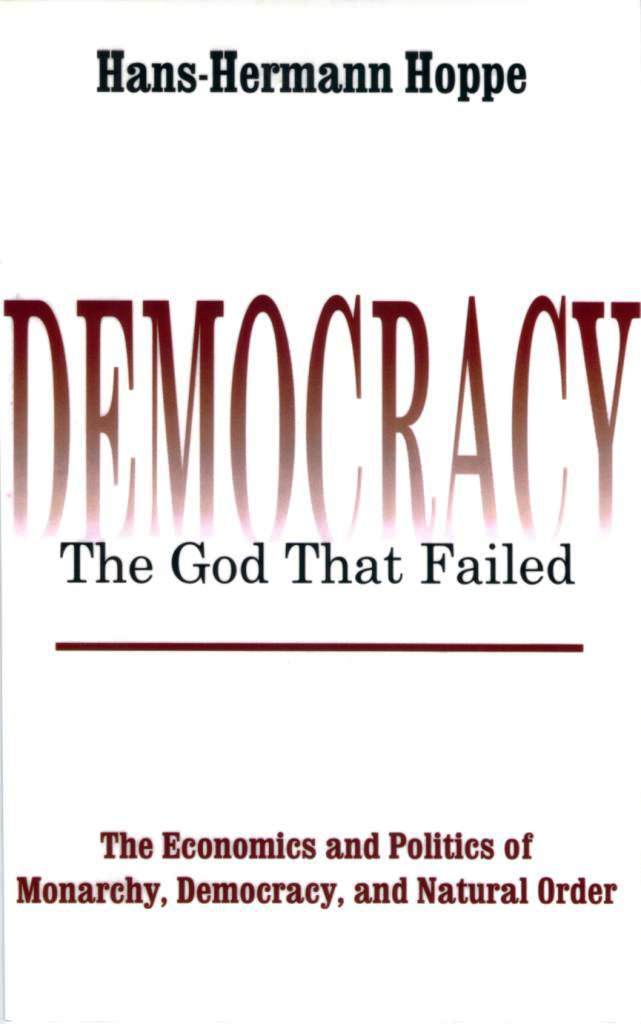


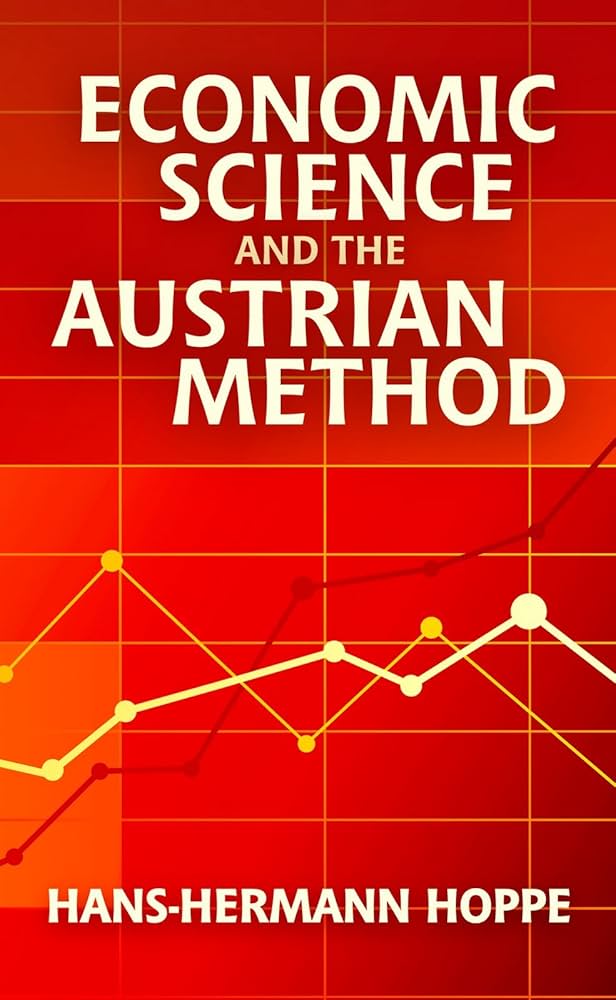
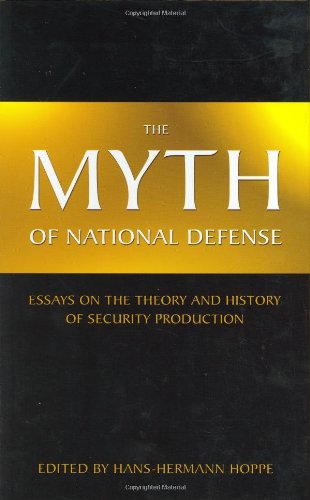
Follow Us!